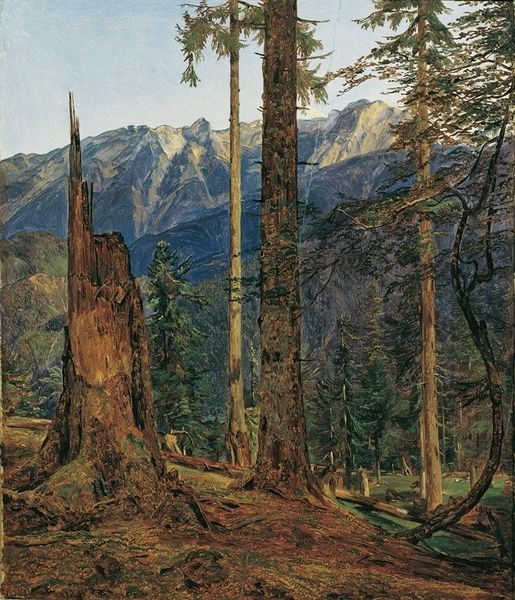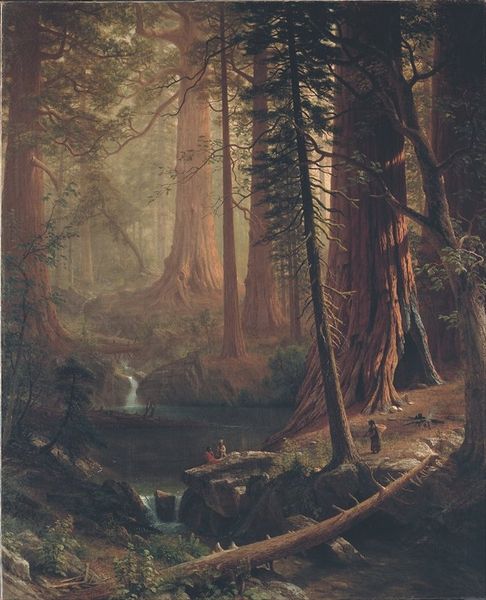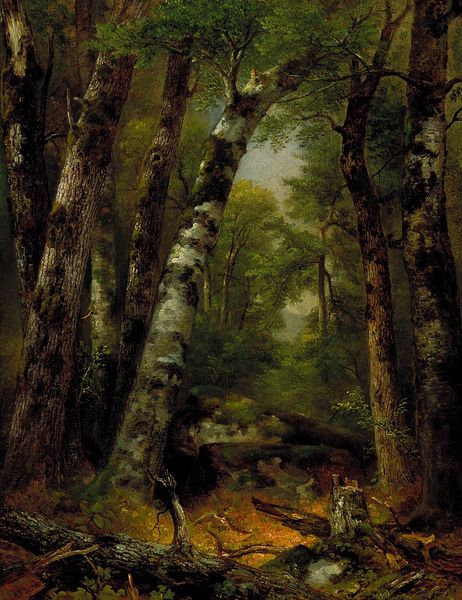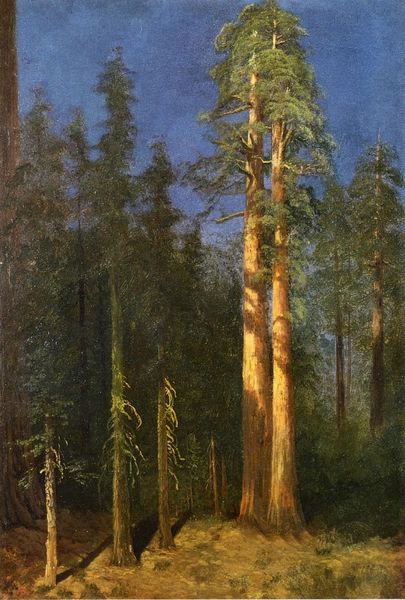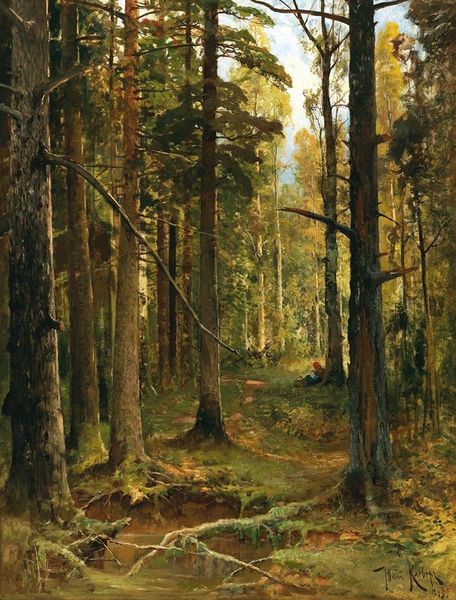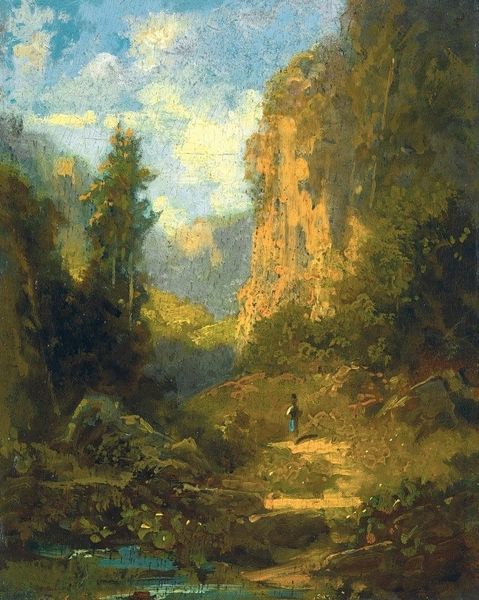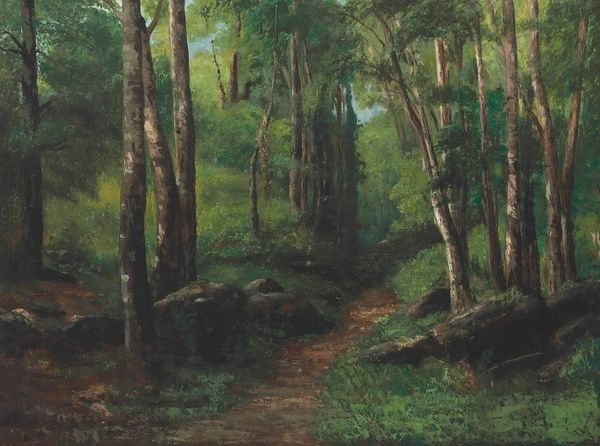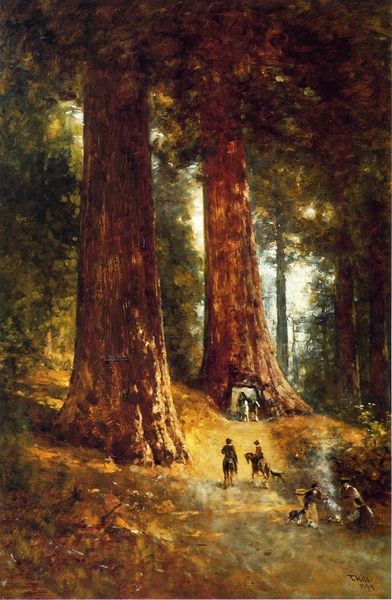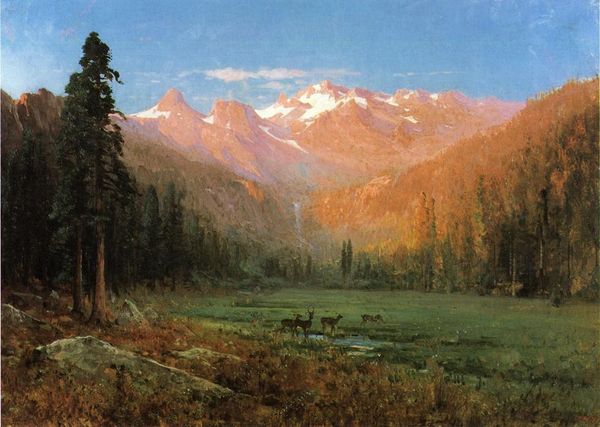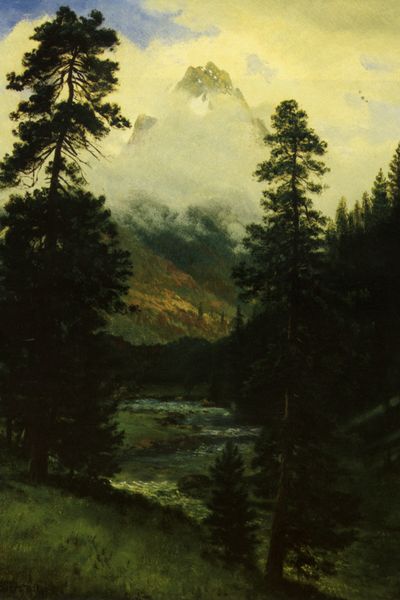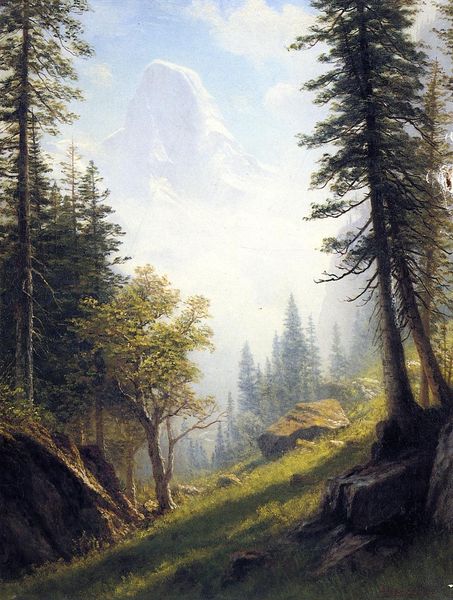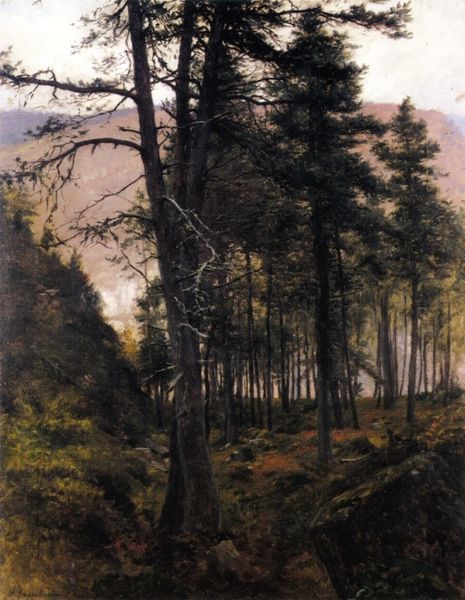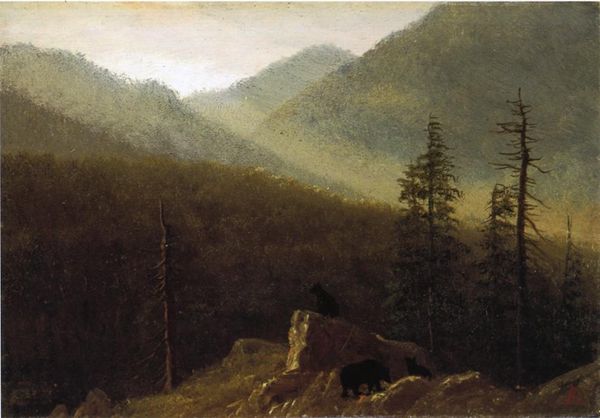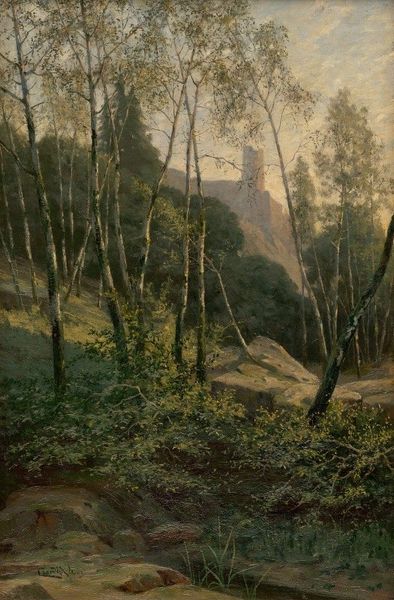
painting, oil-paint
#
tree
#
painting
#
oil-paint
#
landscape
#
oil painting
#
forest
#
folk-art
#
natural-landscape
#
hudson-river-school
#
naturalism
#
realism
Copyright: Public domain
Thomas Hill painted "Black Butte, Mount Shasta" during a time of westward expansion in America. Artists like Hill played a crucial role in shaping perceptions of the American landscape, often idealizing it as a symbol of promise. However, these landscapes frequently overshadow the complex histories of Indigenous peoples who inhabited these spaces long before settlers arrived. Hill’s artistic choices—depicting a serene, untouched wilderness—align with the concept of “Manifest Destiny,” a belief that justified the displacement and erasure of Native American communities. The inclusion of small animals adds a touch of romanticism, drawing viewers into a seemingly innocent scene. Yet, this idyllic representation obscures the violent realities of colonization and its lasting impact on the land and its original inhabitants. As you consider the painting, reflect on the stories and histories that may be missing from this picture. How does it challenge or reinforce the narratives we tell about our relationship to the environment and each other?
Comments
No comments
Be the first to comment and join the conversation on the ultimate creative platform.
